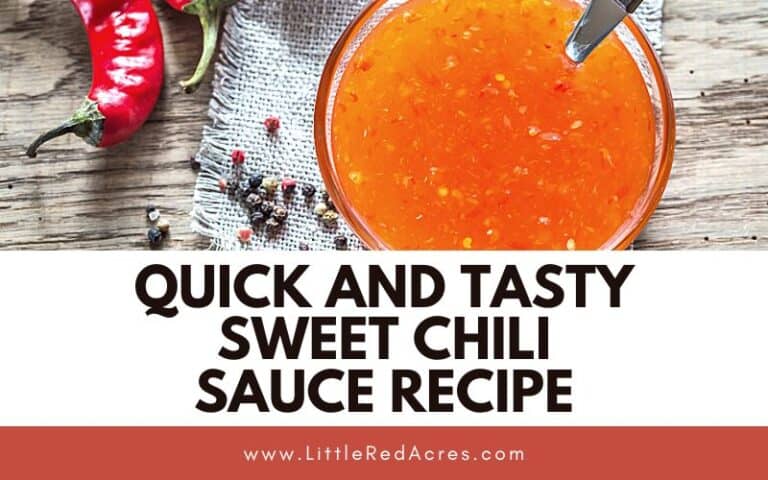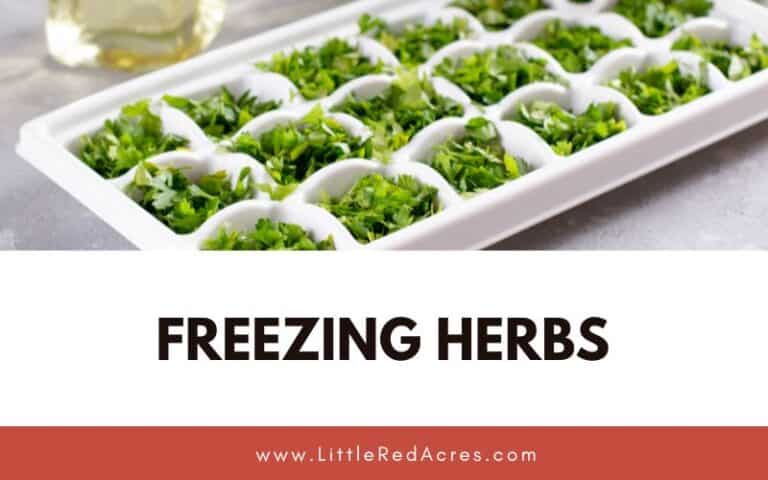Water Glassing Eggs for Long-Term Storage
Inside: Chickens naturally take a break from laying eggs in the winter months. There are ways you can preserve eggs such as water glassing eggs.
Chickens naturally take a break from laying eggs in the winter months. Which is great for them, but not so great for you if you are depending on those eggs for your breakfast or baking. There are a number of ways you can preserve eggs such as water glassing eggs.
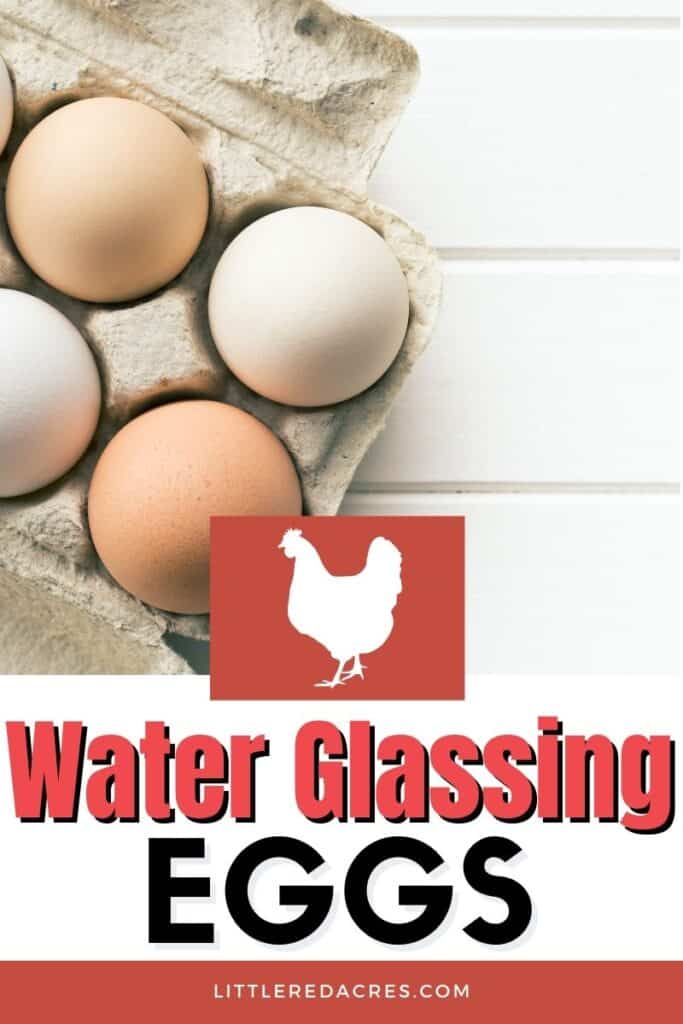
This post may contain affiliate links, see my disclosure policy for more information.
Water Glassing Eggs for Long-Term Storage
We are going into our third year of raising chickens. Our main reason for having them is for their eggs. The other reason is just for my entertainment and sanity. And finally for meat.
Our first winter our chickens were in their first year of laying so there was no big break in laying, but we didn't have a lot of them and had to buy the odd dozen eggs here and there.
Last autumn I took a slight preventive step and water glassed some eggs. I ended up with about four dozen eggs. Between those and newer hens still laying, I didn't have to buy any eggs, YAY!
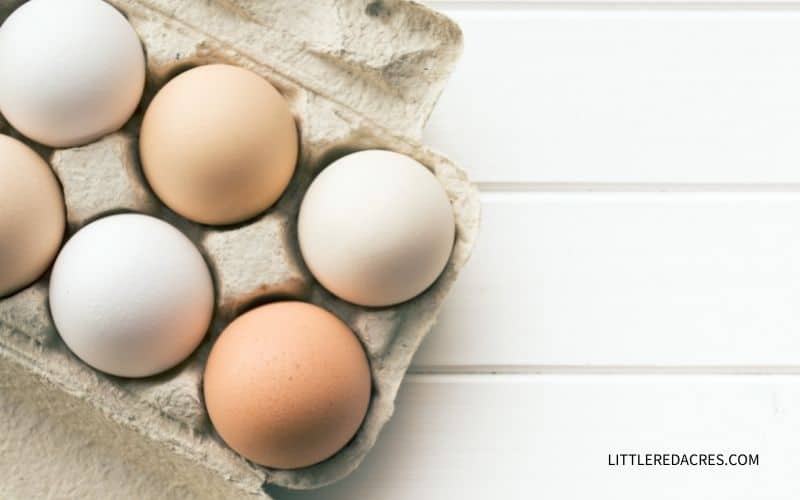
Which Eggs Can Use Use Water Glassing Method With?
You cannot water glass store-bought eggs. These eggs have been scrubbed clean and often bleached. Washing your eggs will destroy the bloom coating, which will allow the lime to enter the egg during the water glassing process.
Any type of fresh, unwashed, clean eggs will work for water glassing. Chicken, quail, duck. Unwashed with the bloom still in place. The bloom coating is then sealed in place by the water and lime mixture during water glassing, leaving you with eggs ready for storage in your pantry.
You do not have to collect all your eggs the same day you make the water-glassing solution. You can add eggs as you gather them.
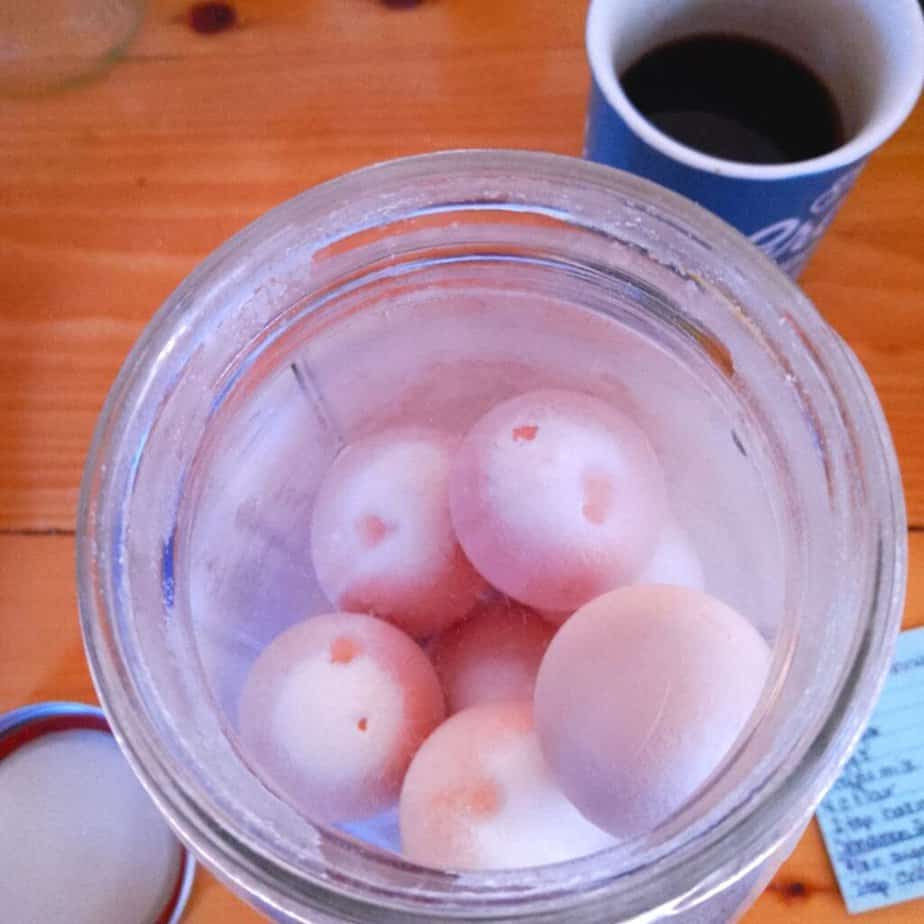
What Type of Lime for Water Glassing Eggs?
Hydrated Lime, which is also known as slaked lime or pickling lime.
What you are looking for is food-grade calcium hydroxide with no additives or preservatives. It has many common names, including hydrated lime, slack lime, and pickling lime. It is sometimes used during the pickling process to give pickles an extra crunch.
Water Glassing Eggs
1 quart of water glassing solution will cover about 15 chicken eggs. I use 1.6L jars, which is the largest size jar I was able to find locally to me. Turns out they are perfect for us. I know exactly how much it holds and how much of the lime-water solution I need.
Ingredients
- Airtight Container (Glass Jar or Food Grade Bucket)
- Kitchen Scale (for measuring the pickling lime)
- Pickling Lime
- Water (Natural or Distilled: must be chlorine-free and fluoride-free)
- Eggs (Fresh, Clean, Unwashed)
How to Water Glass Eggs for Long Term Storage
Mix water and pickling lime (1-quart water to 1-ounce lime ratio).
In your chosen container, add a ratio of 1 quart of water and 1 ounce of pickling lime. This ratio is going to be used no matter how much of the solution you make.
You will want to make sure you have enough solution to cover your eggs by 2 inches. Mix the water and lime until completely dissolved.
Gently add the eggs. You will gently place your eggs pointy side down. If one egg cracks, it will destroy the entire batch. I use our spaghetti spoon to gently place the eggs in the jar. It can reach the bottom of my jar and gently lay the eggs in. I also use it to take the eggs out when I need eggs.
The solution is going to be milky-looking, and you are going to see it layered on your eggs. This is completely normal.
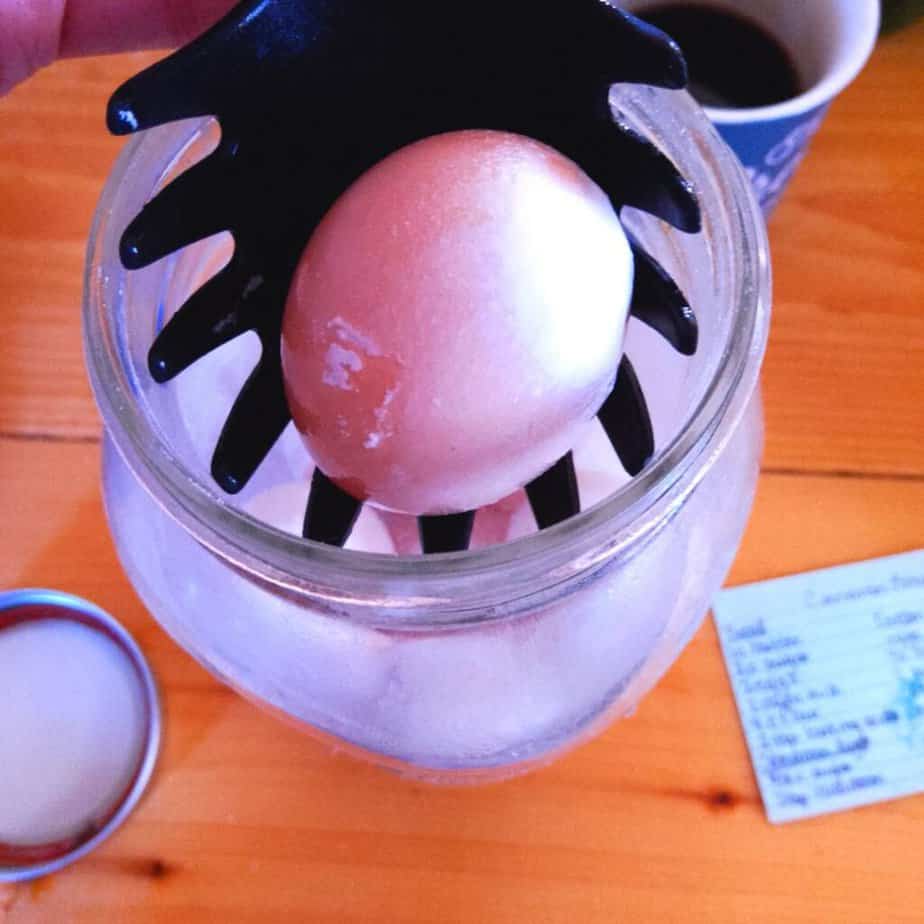
Using Water Glassed Eggs
Your water-glassed eggs should be washed well before using them because ingesting pickling lime is not good for you. You should look out for any cracks in your eggs. Even the smallest crack can contaminate an entire batch of water-glassed eggs.
If you know that you will need eggs later in the week, you can pull some out and store them in the refrigerator for a few days.
I have found that the yolks are not always firm. No making meringue with these eggs. But they taste amazing scrambled, fried, or baked with. Just like freshly laid eggs.
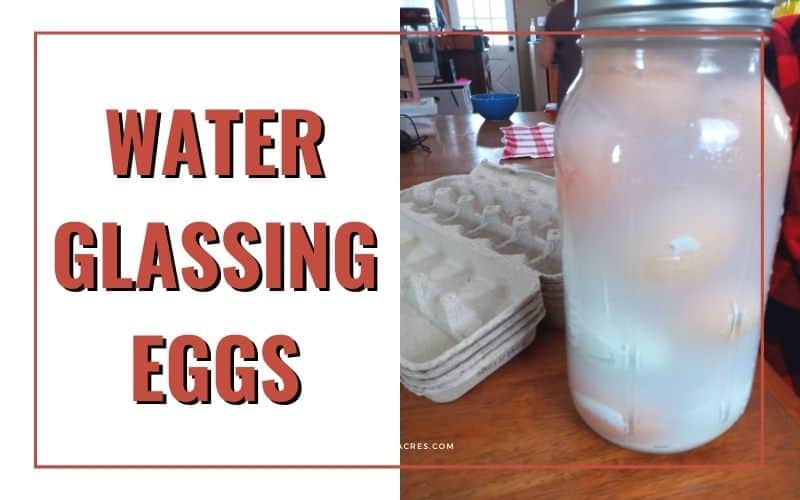
How Long Can Water Glassed Egg Last?
Fresh eggs with the bloom intact can be stored on the counter for about a month and refrigerated for up to six months. Eggs that are preserved with the water glassing method can last up to a year or more.
The water glassing method seals the eggshells, keeping them fresh just like eggs just laid. Store in a cool, dry place.
Frequently Asked Questions
Do water glassed eggs taste different? Do they taste different than fresh eggs? No! That is the best part about water glassed eggs. Freezing and dehydrating eggs changes the texture of the eggs, whereas water glassing keeps them exactly as they were the day the hen laid them.
How do you preserve eggs for years? The most common practices used to preserve eggs are freezing and dehydrating, but you don't want to forget about water glassing eggs and freeze-drying. As a homesteader, it is necessary to prepare for the time when egg production decreases and even stops.

Want More?
Breakfast Recipes Using Extra Eggs
Dessert Recipes Using Extra Eggs

